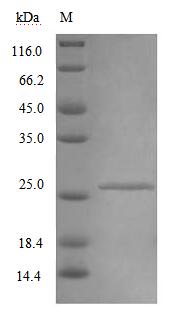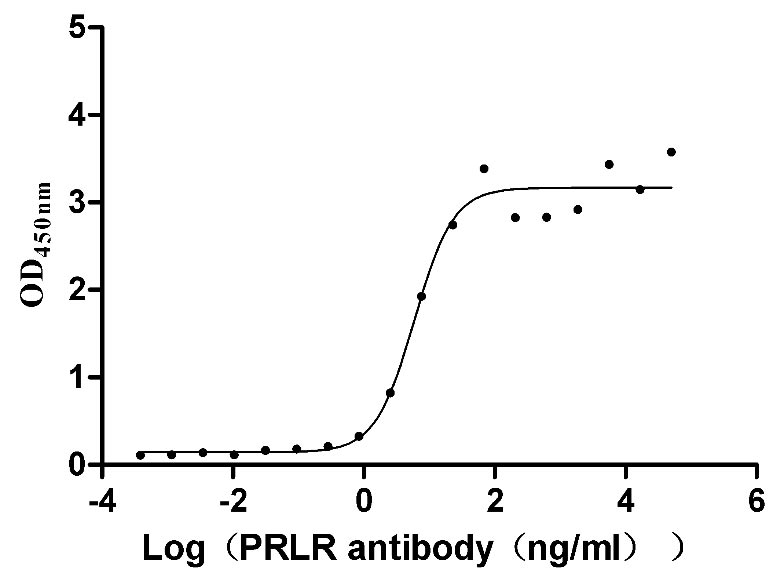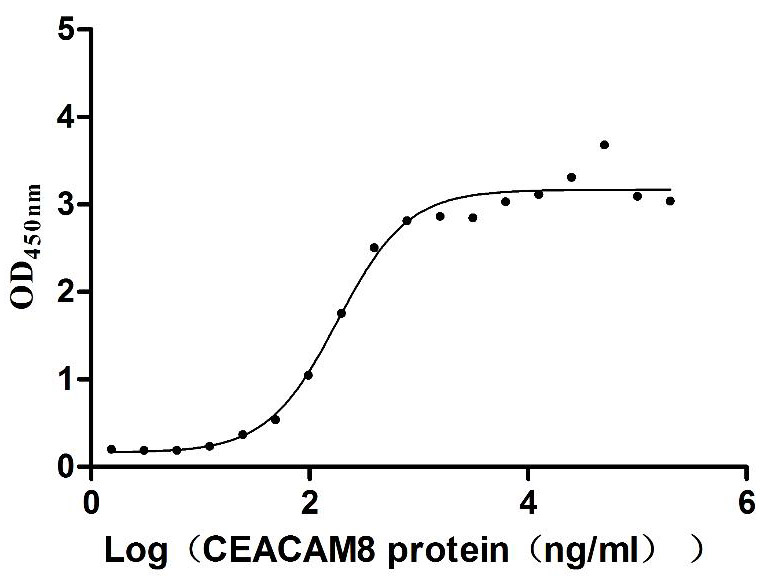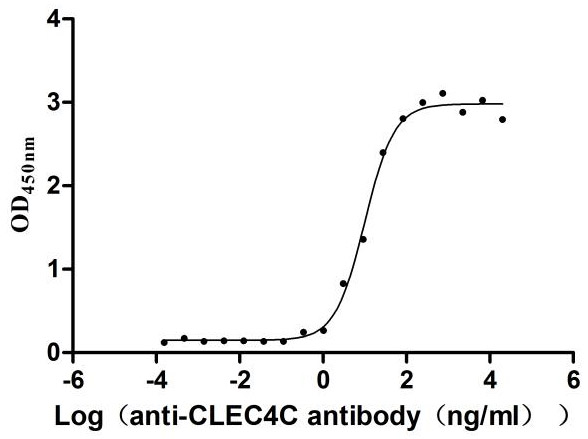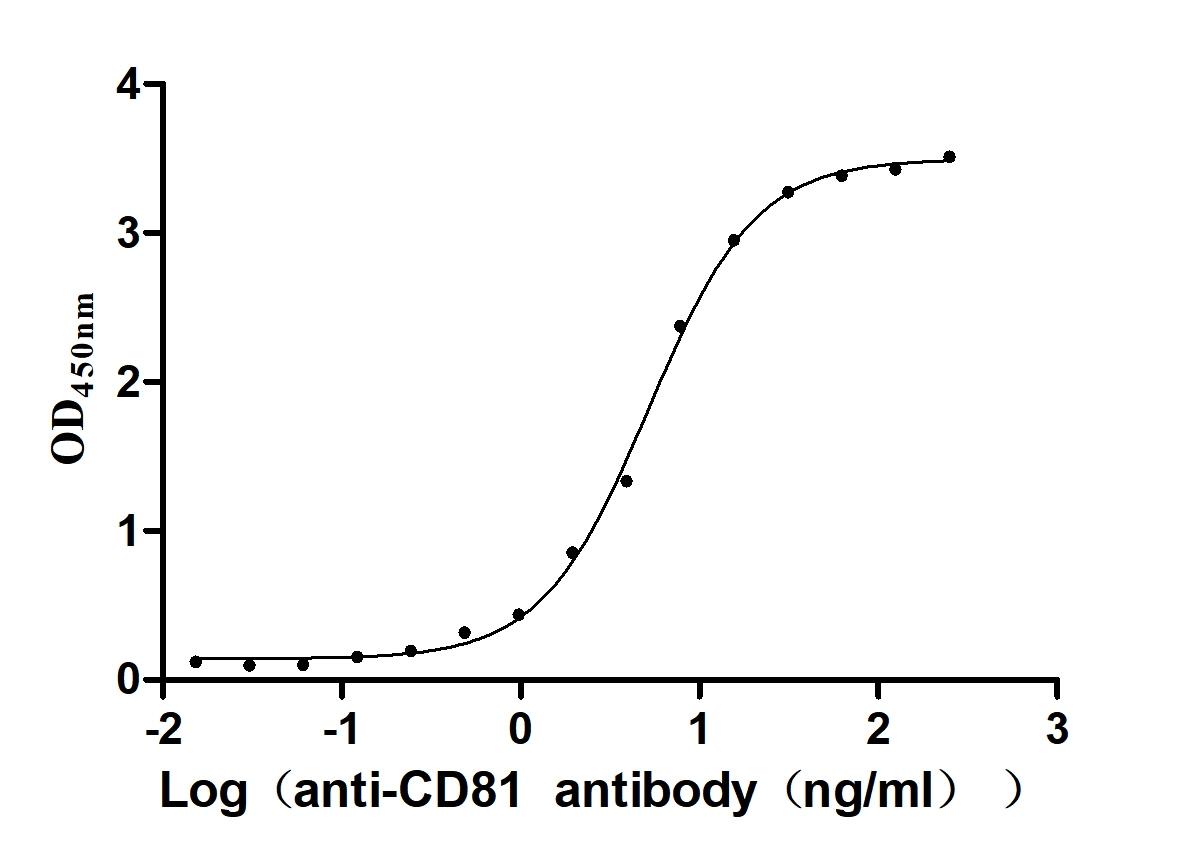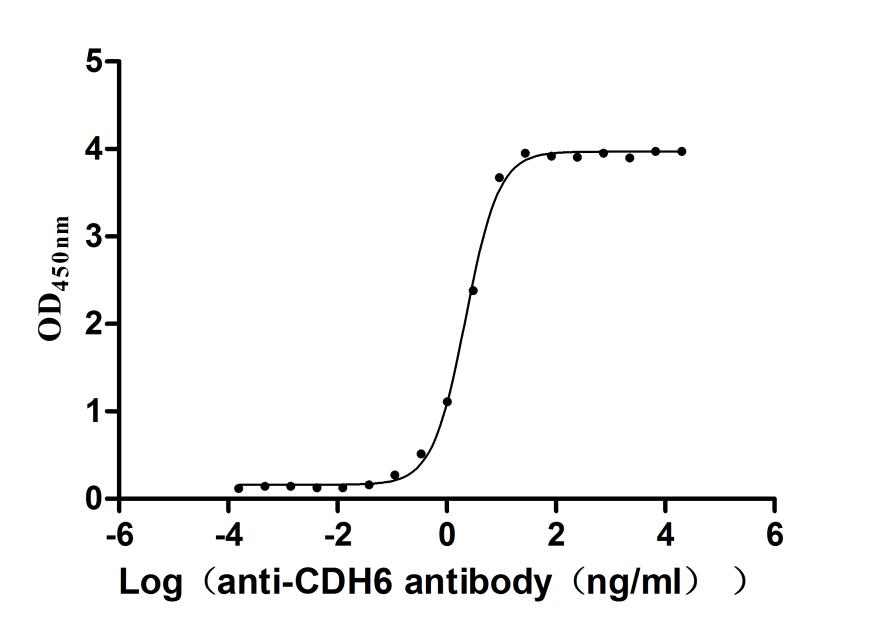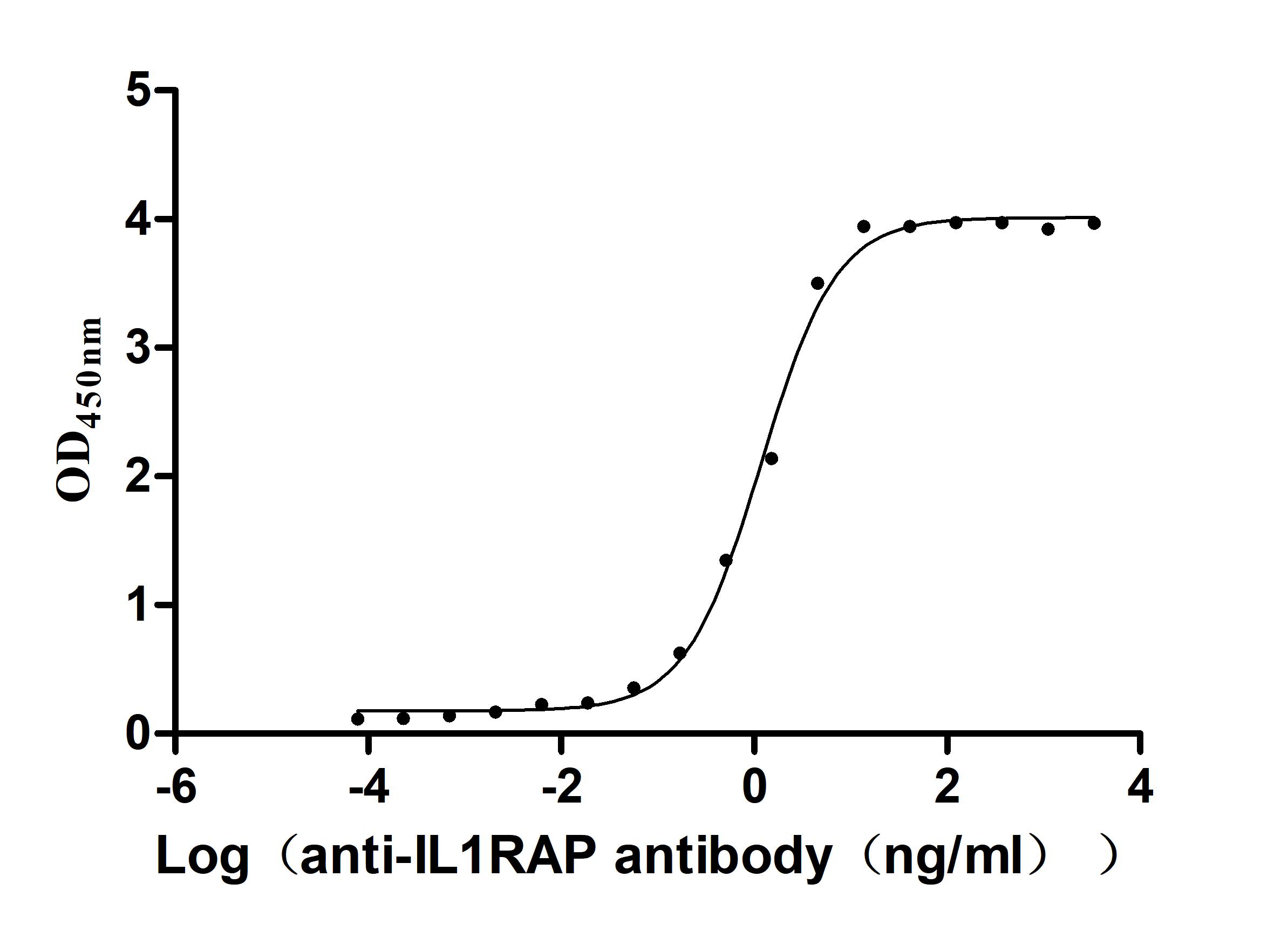Recombinant Mpuse Interferon alpha/beta receptor 2 (Ifnar2), partial
In Stock-
货号:CSB-YP011047MO
-
规格:¥1836
-
图片:
-
其他:
产品详情
-
纯度:Greater than 90% as determined by SDS-PAGE.
-
基因名:
-
Uniprot No.:
-
别名:Ifnar2; Interferon alpha/beta receptor 2; IFN-R-2; IFN-alpha/beta receptor 2; Type I interferon receptor 2
-
种属:Mus musculus (Mouse)
-
蛋白长度:Extracellular Domain
-
来源:Yeast
-
分子量:26.8 kDa
-
表达区域:22-242aa
-
氨基酸序列SLETITPSAFDGYPDEPCTINITIRNSRLILSWELENKSGPPANYTLWYTVMSKDENLTKVKNCSDTTKSSCDVTDKWLEGMESYVVAIVIVHRGDLTVCRCSDYIVPANAPLEPPEFEIVGFTDHINVTMEFPPVTSKIIQEKMKTTPFVIKEQIGDSVRKKHEPKVNNVTGNFTFVLRDLLPKTNYCVSLYFDDDPAIKSPLKCIVLQPGQESGLSESA
Note: The complete sequence including tag sequence, target protein sequence and linker sequence could be provided upon request. -
蛋白标签:N-terminal 6xHis-tagged
-
产品提供形式:Liquid or Lyophilized powder
Note: We will preferentially ship the format that we have in stock, however, if you have any special requirement for the format, please remark your requirement when placing the order, we will prepare according to your demand. -
缓冲液:Tris-based buffer,50% glycerol
-
储存条件:Store at -20°C/-80°C upon receipt, aliquoting is necessary for mutiple use. Avoid repeated freeze-thaw cycles.
-
保质期:The shelf life is related to many factors, storage state, buffer ingredients, storage temperature and the stability of the protein itself.
Generally, the shelf life of liquid form is 6 months at -20°C/-80°C. The shelf life of lyophilized form is 12 months at -20°C/-80°C. -
货期:3-7 business days
-
注意事项:Repeated freezing and thawing is not recommended. Store working aliquots at 4°C for up to one week.
-
Datasheet & COA:Please contact us to get it.
相关产品
靶点详情
-
功能:Associates with IFNAR1 to form the plasma membrane receptor in the type I interferon signaling pathway. Directly involved in signal transduction through its association with the TYR kinase JAK1. Involved in interferon-mediated STAT1, STAT2 and STAT3 activation.; May be potent inhibitors of type I IFN receptor activity.; May be potent inhibitors of type I IFN receptor activity.
-
基因功能参考文献:
- We found that STAT-1(-/-) MRL lpr m, but not IRF-9(-/-) or IFNAR-2(-/-) mice, developed interstitial nephritis characterized by infiltration with RORgammat-positive lymphocytes, macrophages, and eosinophils. PMID: 26636548
- mTORC2 has a central role in IFNgamma signaling and type II IFN responses PMID: 26645692
- In this study, we elucidate the in vivo importance of the soluble type I IFNAR, soluble (s)IFNAR2a PMID: 24696235
- In this study we have characterized the Stat2-IFNaR2 interaction and examined its role in IFNalpha signaling PMID: 11786546
- regions in promoter that confer basal and inducible expression PMID: 11939908
- studies reveal that a single conserved IFNAR2 tyrosine, Y(510), plays a critical role in directing the IFN-I-dependent activation of STAT1 and STAT2, both in murine fibroblasts and macrophages PMID: 18390731
- Our studies provide a critical link between the IFN-I pathway and the regulation of TLR-specific B-cell responses in a murine model of Systemic lupus erythematosus PMID: 19624844
- ability of L. pneumophila to induce IFN-I expression was found to be dependent on IRF-3, but not NF-kappaB. Secreted IFN-Is then in turn suppress the intracellular replication of L. pneumophila PMID: 19720834
显示更多
收起更多
-
亚细胞定位:[Isoform 1]: Cell membrane; Single-pass type I membrane protein.; [Isoform 2]: Secreted.; [Isoform 3]: Secreted.
-
蛋白家族:Type II cytokine receptor family
-
组织特异性:Widely expressed. Detected in liver, testis, kidney, salivary gland, thymus, brain, lung and placenta. Isoform 1, isoform 2 and isoform 3 are expressed in brain.
-
数据库链接:
KEGG: mmu:15976
STRING: 10090.ENSMUSP00000023693
UniGene: Mm.6834
Most popular with customers
-
Recombinant Mouse Prolactin receptor (Prlr), partial (Active)
Express system: Mammalian cell
Species: Mus musculus (Mouse)
-
Recombinant Human Carcinoembryonic antigen-related cell adhesion molecule 6 (CEACAM6) (Active)
Express system: Mammalian cell
Species: Homo sapiens (Human)
-
Recombinant Human C-type lectin domain family 4 member C (CLEC4C), partial (Active)
Express system: Mammalian cell
Species: Homo sapiens (Human)
-
Recombinant Human CD81 antigen (CD81), partial (Active)
Express system: Mammalian cell
Species: Homo sapiens (Human)
-
Recombinant Human Interleukin-2 (IL2) (Active)
Express system: Mammalian cell
Species: Homo sapiens (Human)
-
Recombinant Macaca fascicularis Cadherin 6(CDH6),partial (Active)
Express system: Mammalian cell
Species: Macaca fascicularis (Crab-eating macaque) (Cynomolgus monkey)
-
Recombinant Human Interleukin-1 receptor accessory protein (IL1RAP), partial (Active)
Express system: Mammalian cell
Species: Homo sapiens (Human)
-
Recombinant Human C-C chemokine receptor type 5 (CCR5)-VLPs
Express system: Mammalian cell
Species: Homo sapiens (Human)

